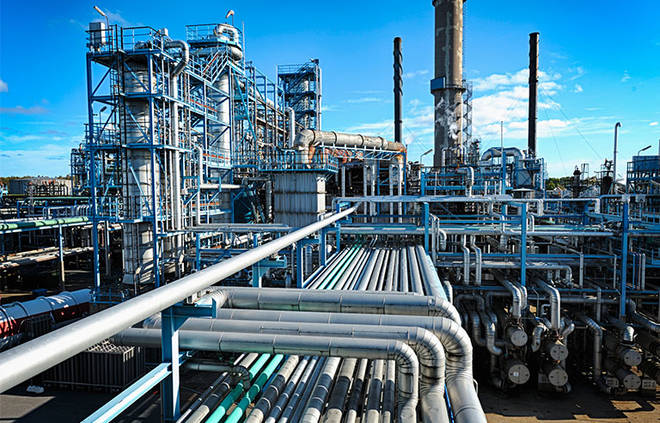
Ghanaian President Nana Akufo-Addo has officially launched the construction of a 300,000 barrel-per-day oil refinery, which will position Ghana as a key petroleum hub in the region.
However, critics have raised concerns about potential flaws in the project. Ghana, known as the world’s second-largest cocoa producer, began producing oil in 2010 and currently outputs about 132,000 barrels of crude oil per day along with 325 million standard cubic feet of natural gas daily, Reuters reported.
“The project promises to be a cornerstone of our nation’s development,” Akufo-Addo said late on Monday at the site of the project in the southwestern city of Jomoro, which will also include petrochemical plants.
Phase one of the project, with an estimated cost of $12 billion, will be financed and constructed by a consortium including Touchstone Capital Group Holdings, UIC Energy Ghana, China Wuhan Engineering Co., and China Construction Third Engineering Bureau Co.
West Africa consumes about 800,000 barrels of oil per day, with nearly 90% of that being imported, according to the African Refiners and Distributors Association. Ghana’s petroleum hub project aims to meet the region’s demand for refined products and by-products by 2036, as outlined in an agreement signed in June 2018.
However, not everyone is convinced by the project. Bright Simons, a vice president at the Accra-based think tank IMANI Africa, expressed scepticism, stating that the consortium behind the refinery “is not primed for investment and the project lacks a bankable business plan.”
“Our position is that this is a speculative attempt to grab a landbank for cheap,” he said.
Some residents of the proposed 20,000-acre site for Ghana’s petroleum hub have voiced strong opposition, protesting the plans and demanding that the project’s footprint be reduced to 5,000 acres.
Despite the opposition, authorities remain committed to moving forward with the current plans for the petroleum hub.










